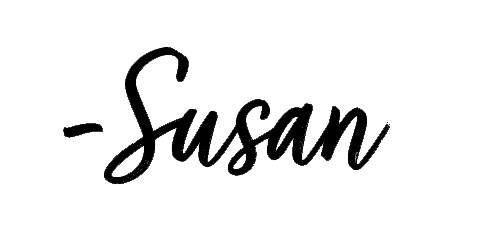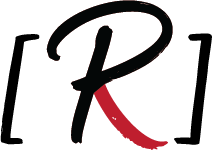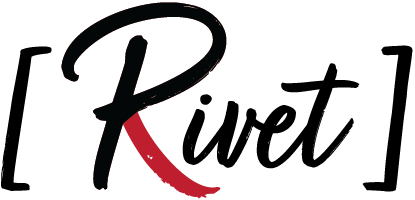Writing with the goal of publishing is a long, sometimes exhausting process. I often hear authors rightfully term their books “their babies” after the months or years they have spent putting their ideas into typeface.
The actual step of sending “their babies” out into the world for public reading can be nerve-racking. One way to calm an author’s nerves before publication and the last step in the editing process is to hire a beta reading service. A beta reader reads the author’s manuscript and then reports their thoughts and opinions about the book.
A beta read offers the author a final check to see if the reading audience will accept “their baby” in the real world. Read on to learn more about beta reads, how to look for a beta reader, and how they can add value for authors getting their book ready for publication.
What is a Beta Read?
You may be familiar with the term beta testing in the world of software or even product development. A beta read is similar to this process but applies to the book world. A beta read provides feedback and impressions on an author’s book before publication and sale.
A beta read provides an author valuable information regarding their book, including:
- The general impression of the story and characters from an average reader’s perspective.
- A glimpse into comments the author may read in book reviews online.
- Insights on plot, theme and characters that the author may be too close to see themselves.
- Mistakes editors may have missed.
Beta reads are the last step in the editing process before the author prepares the book for publication. Beta reads are valuable because they give the author a chance to preview some of the comments they may receive from a general audience and gives them a fresh perspective on the book. In addition, beta reads allow authors to act on any of the suggestions the beta reader provides.
For a beta read, an author provides a reader a pre-published copy of their manuscript. The reader reads the entire manuscript and then provides feedback on the read to the author. Beta readers usually write their thoughts and impressions on the book and send this either in an informal email or a written report back to the author.
Beta readers can be professional editors or average readers. But, a beta reader is someone who has not read the book beforehand. Beta readers are not proofreaders, but sometimes they may call out some of the mistakes a proofreader or editors may have missed.
Unlike the other services I offer covering both authors and businesses, authors mainly use beta readers. However, companies can use beta readers to help with long-form writing piece such as an ebook.
What Should I Look for in a Beta Reader?
A strong candidate for a beta reader is a reader who enjoys and reads several books in the same style and topic you are writing about, so they have something to compare your book to other published works they have read.
A beta reader does not need to be a professional working in writing or editing. Find a person you think may be interested in purchasing your book once it was available for sale, often called the intended audience. However, a beta reader should not be someone who has worked on your book previously. It needs to be someone who is not familiar with or has not read your manuscript.
Another consideration is finding someone genuinely interested in providing you constructive feedback. Communicate with the reader that you are looking for more than just their “star rating.” You want a beta reader to be excited to share more than one sentence with you after reading your book.
Finally, try to find an honest, genuine and kind person who will do their best to provide you the feedback you need to add value to your work.
Where Do I Find Beta Readers?
Ideally, you should target two to four people for beta readers. However, do not cast your net too wide or deep; otherwise, you may end up with more opinions or conflicting suggestions than you can handle.
It is okay to start looking for a beta reader in your friend, family or community groups. However, most authors want unbiased opinions, so searching outside these groups may provide more valuable and detailed feedback.
Any social group you use to stay connected with writing is an excellent place to find a beta reader. I use Facebook groups focused on authors and writers, as well as the Goodreads beta reader forum. I do not want to reinvent the wheel here, so my favorite ideas for searching for beta readers come from the Reedsy blog located here: https://blog.reedsy.com/beta-readers/
How Do I Work with a Beta Reader?
Once you have found a few beta readers to work with, you will want to ensure you get their full cooperation and receive the most valuable feedback possible.
To onboard a beta reader, follow these steps:
1. Introduce yourself and explain where you are in the writing process. Some authors will have a final draft, but authors will often have several more editing rounds to complete.
2. Be upfront with your beta reader and tell them they do not have to mark every mistake they see in the manuscript; otherwise, the beta reader will be spending more of their time correcting errors than reading the material.
3. Explain your goals. Write out the questions you would like the beta reader to answer. Questions help the beta reader thoughtfully read throughout the entire book. Some sample questions are:
- What was your overall impression of the book?
- Is the book too short or too long?
- Was there anything confusing?
- What was your favorite and least favorite part of the book, and why?
- Compared to other books you have read, how did mine stack up? Would you be interested in reading this if it was for sale?
- Do the title and cover art serve the book well? (Note: You do not have to have the cover art or title before engaging with a beta reader)
- What would you change about the book?
4. Give the beta readers a timeline. Most beta readers will read the book on average in two weeks. But if you have more time, or require a quick turnaround, let them know. Do not follow up with emails once your beta reader has started. More than likely, they will be as excited as you are to read the book, but they may also be juggling their daily life and may not read your book immediately.
5. Once you receive their feedback, be open to accepting new ideas and constructive criticism. The entire point of a beta reader is to open your eyes to how an average reader perceives the book. Be courteous and appreciative of any feedback, positive or negative.
6. Follow up with the beta reader with any questions you have regarding their feedback. However, do not monopolize their time. If they are open to speaking with you at length about the book, this can be valuable to a point. My best advice is to follow up with a round of additional questions you need clarifying and thank them for their time.
What Should I Pay a Beta Reader?
Because most beta readers are average readers, most people will be grateful for the opportunity to read an unpublished book and will offer to read the book for free.
However, if you are looking for more professional advice, prices can vary significantly. Some reasons the price may be higher include:
- The type of information presented. For example, a fact-driven non-fiction book will take more time to digest than a fictional beach read. Or, if the book is instructional material meant for graduate-level classes, you will need to find a beta reader who has experience with reading material for this audience. In this case, an author may need to pay more for a beta reader.
- The reading levels. Again, if the book focuses on a high-level or specific-aged reader, an author may offer compensation to the beta reader. Strongly consider paying for a beta reader if the book will be read by children. Children’s books may require a qualified teacher or someone skilled in working with younger readers.
- The language and dialect used
- Length of the book
- Type of information you would like reported back
Again, most people will be thrilled you asked them to read your book, and will be more than willing to read your book without getting paid to do so. If you choose to pay for a beta reading service, this step should not be too pricey. A beta reader should not cost you out of moving forward with publishing your book.
What Do I Offer?
Beta reading is genuinely a job perk for me. I love reading people’s books and offering them a few insights into improving their work before publication. I want to help people make their work better.
Although I concentrate on non-fiction, memoirs, outdoor adventure and sports stories, I read all genres. If you are looking for a beta reader for your book, I would love to help. Please contact me with a description of your book to see if I would be a good fit for you.
I look forward to hearing from you!








